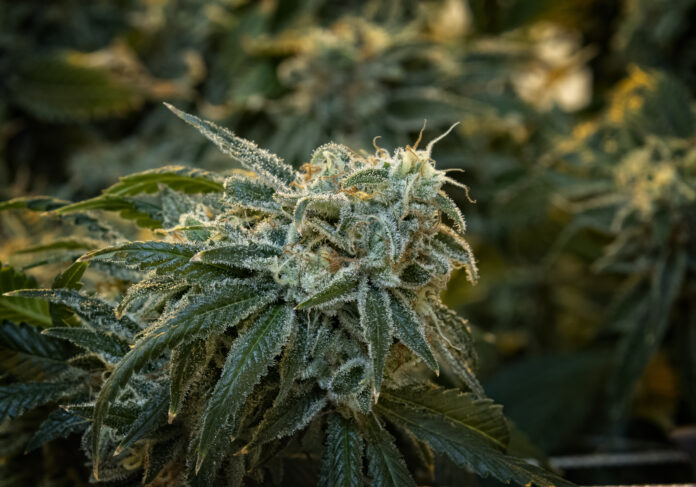
PROVIDENCE – Rhode Island is poised to become the 19th state to legalize recreational marijuana, with state lawmakers in both chambers approving legislation Tuesday.
The 55-16 and 32-6 votes in the R.I. House and R.I. Senate, respectively, mark a major victory in the decadelong effort to legalize, tax and sell recreational marijuana. The measure heads to the desk of Gov. Daniel J. McKee, who intends to sign it Wednesday, according to a statement.
The votes came after several hours of impassioned debate, during which time proponents stressed the collaborative process, which included input from lawmakers, advocates, legal experts and the governor’s administration in shaping the proposal.
A revised version of the bill was released earlier this month to incorporate that feedback, with changes, including automatic expungement of civil and criminal records for marijuana possession and giving the governor more power to choose his appointees to the three-member Cannabis Control Commission.
“This is a good, strong, fair and equitable bill,” said Rep. Marvin Abney, D-Newport, who chairs the House Finance Committee.
The regulatory commission, modeled after one in New York, will be tasked with developing the rules and issuing licenses to retail pot shops, as well as regulating both recreational and medical marijuana. While retail sales won’t begin until Dec. 1, Rhode Islanders will be able to use and grow at home small amounts once the bill is signed into law.
The 24 soon-to-be licensed retail pot shops won’t be up and running by the Dec. 1 sales start, although the nine existing medical marijuana stores will be allowed to sell to retail users under a hybrid model.
Retail consumers will pay 20% taxes – combination of state and municipal – on marijuana bought at pot shops, a point of contention for R.I. Rep. David Place, R-Burrillville, who said the high tax rate would perpetuate black market sales as a cheaper alternative.
However, the tax revenue from marijuana sales is a key selling point for some supporters, who point to the success of neighboring Massachusetts, which is raking in revenue from Rhode Island users who are forced to cross state lines to buy recreational marijuana.
Exactly how much money this will bring in for the state is unclear; a prior study suggested $20 million in state tax revenue annually, but those numbers are outdated and likely higher now amid a growing marijuana market, Sen. Joshua Miller, D-Cranston, who sponsored the Senate legislation, said previously.
Also undetermined is how the retail pot shops will be chosen. The bill leaves it up to the commission to decide how to award the retail licenses, which must be spread across six designated zones, with certain licenses reserved for co-op and social equity applicants. Miller and Rep. Scott Slater, D-Providence, both said they favored a merit-based approach, while McKee in his own legislation called for a lottery system.
Some lawmakers – both Democrats and Republicans – on Tuesday also highlighted law enforcement-related concerns, reiterating the points made by the Rhode Island Police Chiefs Association, which in a statement called the bill “woefully inadequate” for dealing with public marijuana use and driver safety.
Employers and business organizations, many representing the manufacturing industry, have also shared concerns about drug testing and worker impairment if marijuana is legalized.
Slater described the legislation as a starting point, noting that it will be tweaked in future years to address problems and improve upon the existing structure.
An advisory panel of political representatives and industry experts will offer recommendations to the commission, while a governor-appointed administrator will head the state cannabis office, reporting directly to the commission.
As tax revenue from sales starts flowing in, the ID and plant tag fees paid by medical marijuana patients and caregivers will be phased out.
Cities and towns can opt out of hosting a retail seller in their municipality through an ordinance and ballet referendum, except for the three municipalities already hosting medical dispensaries.
Nancy Lavin is a PBN staff writer. You may reach her at Lavin@PBN.com.












